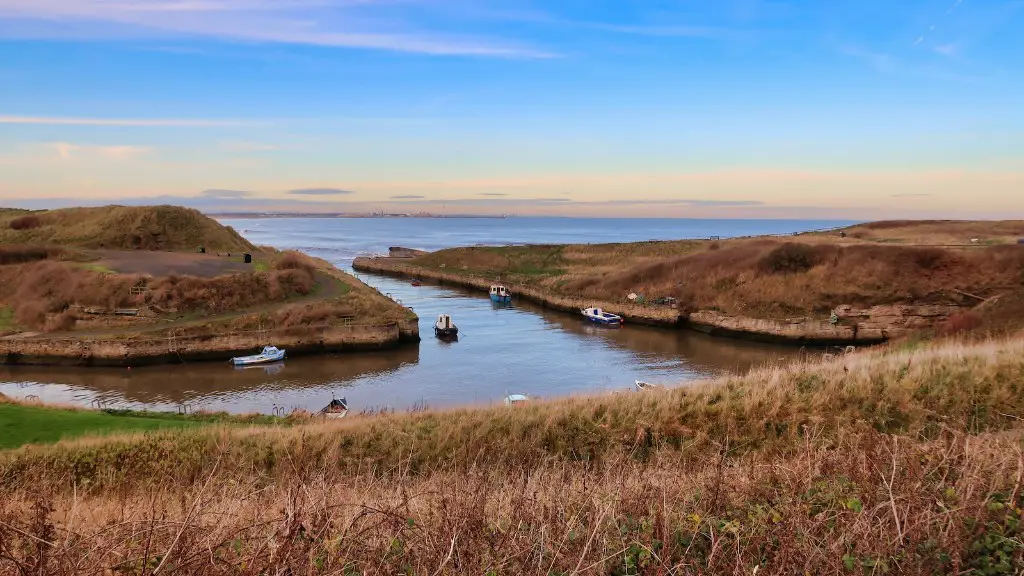The Nile River was a defining feature of life and agriculture in ancient Egypt. Fed by the seasonal rains of tropical Africa, the Nile flowed throughout all of Egypt and provided a fertile, productive environment for its people to thrive. Its importance likely cannot be overstated – the river was essential to the economic, cultural and spiritual prosperity of the area. As a result, the river and its effects on ancient Egypt helped foster the development of one of the world’s oldest and most advanced civilizations.
The Nile was seen as a blessing from the gods. The ancients referred to the Nile as “hapy” which translates as “the Nile that gives happiness”. According to legend, the first Egyptians were created from the Nile’s soil and its waters were thought to offer protection and ever-lasting life. While the people saw the Nile as a blessing, the vastness of its waters – and the unpredictability of their shifting, overflowing banks – loomed as a great threat. To control the river and its destructive force, the Egyptians built irrigation canals, dykes and sluice gates. These structures helped to regulate the river and allowed for more efficient distribution of resources.
The most important impact of the Nile on ancient Egypt was its ability to provide fertile soil for farming. During the annual flooding, the river deposited nutrient-rich silt along the riverbanks and filled low-lying areas. This provided productive arable land and enabled farmers to cultivate crops such as wheat and barley. In turn, this enabled ancient Egyptians to form and sustain cities, feed an army and facilitate a very large and complex government. Without the gift of the great river, it is unlikely that the ancient Egyptians would have achieved their great heights of sophistication and power.
Apart from generating an ideal, arable environment, the Nile also allowed for widespread trade. The Egyptians were able to trade in the area and acquire vital commodities such as food and materials. Moreover, the river’s flow also enabled them to transport goods to distant lands, as far away as present-day Syria and Libya, which furthered their economic reach.
The Nile offered protection from invaders, making it easy for the Egyptians to fend off hostile takeover attempts. Furthermore, the Nile was particularly beneficial for its military function. By maximizing the use of its waters and the environment it created, the Egyptians were able to effectively control transportation, communication, and even naval strategies.
The impact of the river on ancient Egypt extended beyond economic and military advantages. It was a source of wonder and solace, a symbol of the gods and a helpful tool for navigation. The river was also a major source of inspiration for many of the most famous monuments and artwork of the ancient Egyptians. This speaks to the importance of the Nile in richly expressing their culture and helping them to feel connected to their creators and the natural world around them.
Economic Impact of The Nile River on Ancient Egypt
The Nile River provided a number of economic benefits to the Egyptians. Firstly, it allowed them to travel large distances and trade with many countries in the area. Farming was made possible, due to the Nile’s rich and fertile soil and annual flooding which left fields drenched in nutrient-packed silt. These fertile fields meant that the Egyptians were able to cultivate a variety of crops like wheat and barley. In addition, the river made it much easier for the Egyptians to transport goods from one region to another as well as a route to raise and lower taxes to increase revenue.
As one of the most valuable resources of the ancient Egyptians, the Nile River was also key in their strategies for military defense. Control of the river was a pivotal factor in many battles, and its wide expanse was essential for building and maintaining an effective naval trade industry.
In the agricultural sector, the Nile was the lifeblood of the Egyptians, providing an optimum environment for their crops. Egypt is mostly desert, so the river provided a means of cooling the surrounding area during the hot months and protected them from droughts. As a result, there was much less risk of crop failure and famine.
Apart from being an essential economic source for the Egyptians, the Nile was also an extraordinary source of inspiration for its art. Many of the monuments and artwork of the ancient Egyptians drew upon its legacy and the connections the Nile had with the gods. This made it a symbol of growth and prosperity in early Egypt.
Finally, the Nile helped to establish the culture and identity of the Egyptians, giving them a sense of belonging and encouraging their spirit. The river was seen as a channel leading to a better life, which in turn enabled them to become one of the world’s most influential civilizations.
Environmental Impact of The Nile on Ancient Egypt
The effects that the Nile’s presence had on the Egyptian environment were vast and far reaching. It provided a much-needed source of food, water, and sustenance for the population. Water from the river sustained much of the landscape, including animal life and aquatic life. Many species of fish, birds, and other animals call the Nile home, and their presence enriches the environment.
The Nile also created an important habitat for many plants to thrive. These plants include rubber trees and papyrus reeds, which were important for their use as materials and in making paper. In addition, the river also had a large impact on the climate of the region, helping to keep temperatures bearable and regulate extremes, while also allowing many species of plants and animals to adapt to their changing surroundings.
Because of its central role in the Egyptians’ life and civilization, the Nile was seen as an important resource that needed to be respected and taken care of. As such, the annual flooding of the river was viewed by the ancient Egyptians as a blessing. Knowledge of the river’s ecosystem was also crucial in order to continue to live in harmony with one another and the environment.
The Egyptians built extensive irrigation systems and drainage canals to help prevent flooding, control the water level, and provide a place for excess water. These systems were an impressive feat of engineering, enabling the people to regulate and control their environment.
Furthermore, the Egyptians also developed various ways to conserve and preserve the environment. They adopted methods such as crop rotation and planting trees. By doing this, they were able to ensure that the land stayed fertile and resilient for generations to come.
Impact on Religion and Culture
The Nile also held a deep meaning for the Egyptians in terms of religion and culture. In the Egyptian’s eyes, the river was seen as a symbol of life, fertility, and abundance. It was believed to be a gift from the gods and a direct connection to the afterlife. This link meant that the river was a great source of spiritual enlightenment and insight.
Moreover, it was believed that the river’s deity, Hapi, held special powers and protection. Devotees would make offerings to Hapi in exchange for favorable conditions, such as a successful harvest. It was also believed that the river’s flooding created vibrant, green lands that were essential for the ongoing cycle of life.
In addition to its spiritual significance, the Nile was also believed to contain the souls of ancestors. As a result, the Egyptians saw their relationship to the river as a tangible bond between the past and present. This made the river a sacred place reflecting the history, culture, and customs of their people.
The Nile was also incredibly important as a source of entertainment. Ancient Egyptians used the river for various leisure activities such as fishing, hunting and sailing. Moreover, it was seen as a place for recreation – a place where people could enjoy nature and connect with one another.
Overall Impact On Ancient Egypt
The Nile had an immense impact on ancient Egypt, helping to shape its culture, economy, and environment. Without the Nile, the ancient Egyptians would not have been able to build one of the world’s oldest and most advanced civilizations. The river’s abundance provided them with a reliable source of sustenance and resources, which enabled them to build strong cities, trade networks, and government systems. Its spiritual significance was also essential for the religion and culture of their people.
The impact of the Nile on ancient Egypt also has lasting implications today. Its legacy continues to shape our understanding of the region and its culture. Therefore, the effects of the river remain an integral part of global history, raising an understanding of the power of human ingenuity and resilience.





